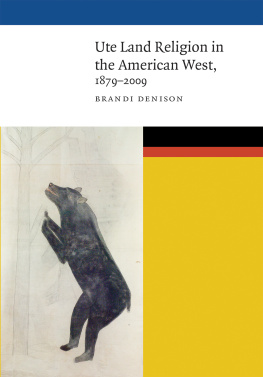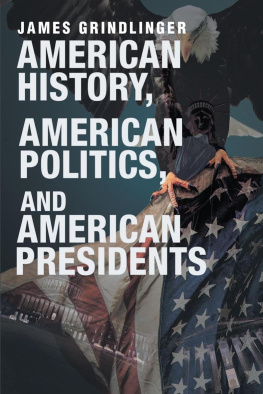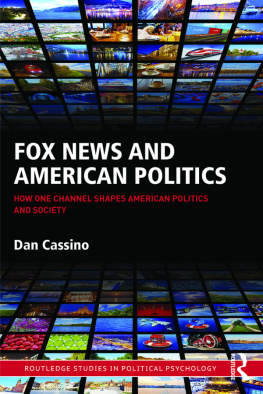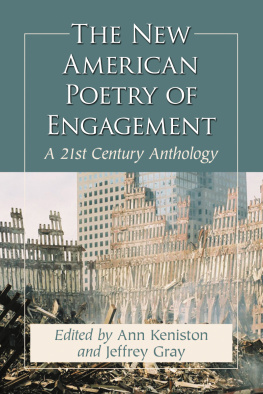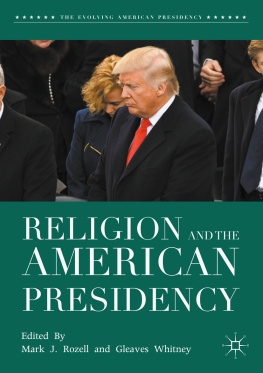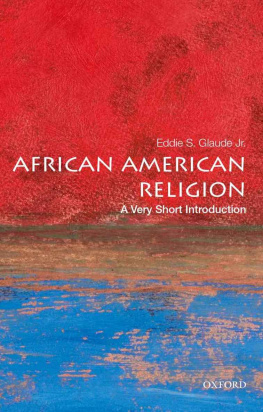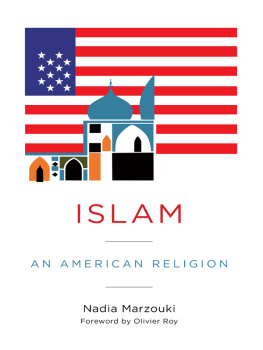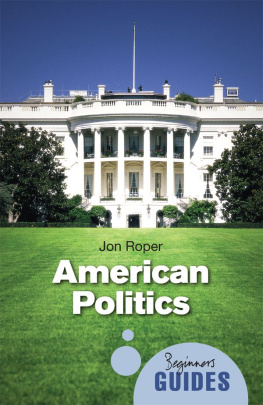An Anthology Reol - American Religion, American Politics
Here you can read online An Anthology Reol - American Religion, American Politics full text of the book (entire story) in english for free. Download pdf and epub, get meaning, cover and reviews about this ebook. year: 2017, publisher: Yale University Press, genre: Religion. Description of the work, (preface) as well as reviews are available. Best literature library LitArk.com created for fans of good reading and offers a wide selection of genres:
Romance novel
Science fiction
Adventure
Detective
Science
History
Home and family
Prose
Art
Politics
Computer
Non-fiction
Religion
Business
Children
Humor
Choose a favorite category and find really read worthwhile books. Enjoy immersion in the world of imagination, feel the emotions of the characters or learn something new for yourself, make an fascinating discovery.

- Book:American Religion, American Politics
- Author:
- Publisher:Yale University Press
- Genre:
- Year:2017
- Rating:4 / 5
- Favourites:Add to favourites
- Your mark:
- 80
- 1
- 2
- 3
- 4
- 5
American Religion, American Politics: summary, description and annotation
We offer to read an annotation, description, summary or preface (depends on what the author of the book "American Religion, American Politics" wrote himself). If you haven't found the necessary information about the book — write in the comments, we will try to find it.
American Religion, American Politics — read online for free the complete book (whole text) full work
Below is the text of the book, divided by pages. System saving the place of the last page read, allows you to conveniently read the book "American Religion, American Politics" online for free, without having to search again every time where you left off. Put a bookmark, and you can go to the page where you finished reading at any time.
Font size:
Interval:
Bookmark:
American Religion, American Politics
American Religion, American Politics
An Anthology
Edited by
Joseph Kip Kosek
With a foreword by Jon Butler
Yale UNIVERSITY PRESS
New Haven and London
Published with assistance from the foundation established in memory of Amasa Stone Mather of the Class of 1907, Yale College.
Copyright 2017 by Joseph Kip Kosek.
Foreword copyright 2017 by Jon Butler.
All rights reserved.
This book may not be reproduced, in whole or in part, including illustrations, in any form (beyond that copying permitted by Sections 107 and 108 of the U.S. Copyright Law and except by reviewers for the public press), without written permission from the publishers.
Yale University Press books may be purchased in quantity for educational, business, or promotional use. For information, please e-mail (U.K. office).
Set in Sabon type by Newgen North America.
Printed in the United States of America.
Library of Congress Control Number: 2016956026
ISBN: 978-0-300-20351-6 (paperback : alk. paper)
A catalogue record for this book is available from the British Library.
This paper meets the requirements of ANSI/NISO Z39.48-1992 (Permanence of Paper).
10 9 8 7 6 5 4 3 2 1
For Ellie, Charlotte, and Theo
Contents
by Jon Butler
Foreword
Jon Butler
Religion and politics were the subjects you werent supposed to bring up at Thanksgiving dinner. Why not? Arent they the most interesting, the topics that provoke the most discussion, the ones that get the juices flowing? Those are the reasons, of course.
Still, why, and why in America? Dont we have separation of church and state?
William James, the American philosopher, explained why religion raised the discussion stakes. Religion concerns the inner dispositions of man... his conscience, his deserts, his helplessness, his incompleteness. It is the primordial thing.
Virginias James Madison, the Founding Father and fourth president of the United States, explained why politics roiled discussions. Politics beget government, the essence of Government is power, and power, lodged as it must be in human hands, will ever be liable to abuse.
James and Madison describe the implications of religion and politics, but what do we mean by religion and by politics? The concepts have never not been debated, and modern scholars have only added new voices to old. James helps on a conception of religion. He described it as the feelings, acts, and experiences individuals have in relation to whatever they may consider the divine. And the divine? Some would describe it as the transcendent, that which is permanent, timeless, standing outside and beyond the human, God.
Politics? It is far more than government, which is just its modern instrument. The classic concept comes from Aristotles treatise, Politics. For Aristotle, it concerned what the Greeks called the polis, the community: what falls under the communitys purview, who constitutes the community, and how the communitys authority is distributed and exercised, the latter involving government in modern terms. Politics is life. It is especially about the ways individuals, families, and groups live life in relationship to others, to the whole.
Transcendence, life, and power. With subjects like these, the drumsticks could be dangerous.
But why should discussions of religion and politics at an American Thanksgiving become so heated when the Constitution seems crafted to avoid them? Unlike the founding documents of many modern societies, the original U.S. Constitution contained no reference to religion except in Article 6, which stipulates, no religious test shall ever be required as a Qualification to any Office or public Trust under the United States. The words under the United States limited the prohibition only to federal, not state, offices, but the stipulation might be thought to defuse many American controversies about religion and politics, if not all.
Seemingly more definitive is the First Amendment to the Federal Constitution, ratified in 1791. It famously asserted rights of free speech, the press, assembly, and petitioning government. But it opened with a sweeping statement about religion and politics:
Congress shall make no law respecting an establishment of religion, or prohibiting the free exercise thereof; or abridging the freedom of speech, or of the press; or the right of the people peaceably to assemble, and to petition the Government for a redress of grievances.
Yet far from settling matters, the First Amendment raised questions about religion and government, just as it raised questions about free speech, freedom of the press, free assemblage, and petitioning for grievances. Many always have been general. How far do these stipulations go? How strictly should they be interpreted? Are they absolute? Do other rights compete?
But some questions have been very specific. What does establishment mean? What qualifies as religion? How free is free exercise? Some questions also have come from later assertions made about the First Amendment, most notably one by Thomas Jefferson. In a letter written to Connecticut Baptists in 1802 Jefferson argued that the Amendment built a wall of separation between church and state, a phrase so mellifluous that it has come to seem like part of the Amendment itselfeven cited in some U.S. Supreme Court opinionsalthough it has no legal standing.
Jefferson, in haste or with craft, changed the First Amendments phrasing from a law banning an establishment of religion to one erecting a wall of separation between church and state, the reference to church especially circumscribing the subject with much greater specificity.
Intriguingly, the U.S. Supreme Court has never defined religion. Justices have used the term routinely, as they obviously must. But they have never crafted a legal definition of religion or determined which religion or religions might claim protections of the First Amendment, especially the protection given free exercise.
The reason is not hard to fathom. The American record of spawning new faiths (Spiritualism, Mormonism, Adventism, Jehovahs Witnesses, Christian Science, New Thought, Pentecostalism, the Native American Church, Reconstructionist Judaism, the Nation of Islam, and Scientology) and all the time importing more (Catholics, Swedenborgians, Muslims, Hindus, Buddhists, Confucianists, Sikhs, Daoists, Jains, Taoists, and Rastafarians, among others) would bring any constraining legal definition of religion immediately to its knees.
Americas unprecedented religious pluralism thus helps explain why controversies about establishment never have focused on the terms traditional meaning: government support for a single religionthe Catholic Church or the Church of England, for example.
Instead, establishment controversies have focused on broad practices involving religion, required by law or government regulation, that many religious and nonreligious people have found offensive, and an effort to establish religion broadly but not a specific religion. In the nineteenth century these included disputes about which Bible, Protestant or Catholic, might be used in compulsory Bible readings in publicly supported schools, and in the twentieth century they have concerned the compulsory Bible readings themselves, compulsory school prayers, and requirements to salute the American flag.
First Amendment arguments about free exercise often have a grittier feel and have brought the Court to setting limits on religiously founded behavior. The Court effectively outlawed Mormon polygamy in 1878, distinguishing between belief and action, and in 1990 it upheld Oregons ban on peyote, used in the services of the Native American Church, because the ban was directed broadly at a drug, not at a religion.
Next pageFont size:
Interval:
Bookmark:
Similar books «American Religion, American Politics»
Look at similar books to American Religion, American Politics. We have selected literature similar in name and meaning in the hope of providing readers with more options to find new, interesting, not yet read works.
Discussion, reviews of the book American Religion, American Politics and just readers' own opinions. Leave your comments, write what you think about the work, its meaning or the main characters. Specify what exactly you liked and what you didn't like, and why you think so.

